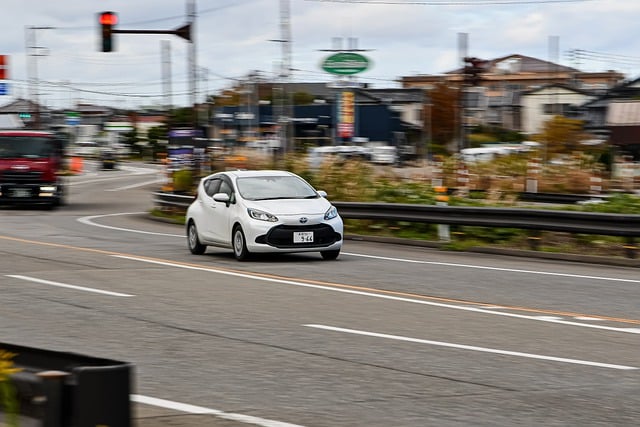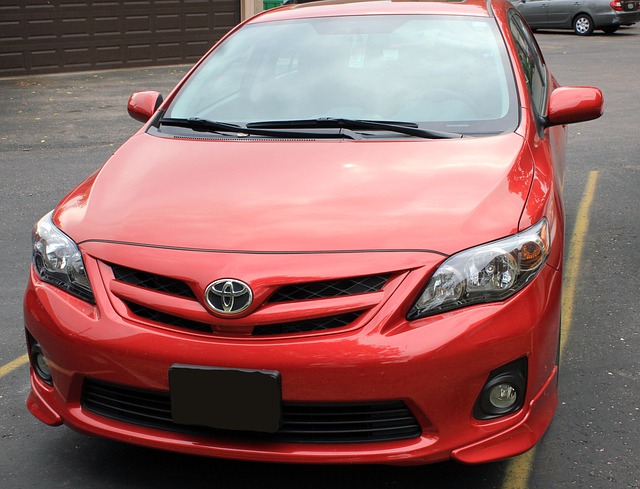Many automobile customers see Toyota as a symbol of dependability, durability, and superb engineering. Even within the acclaimed brand’s inventory, certain model years stand out more than others. Let’s go on a trip through Toyota’s manufacturing history to discover the highs and lows and help prospective purchasers make educated judgments.

Best years:
The 2007 Toyota Camry The 2007 Camry is widely considered as one of Toyota’s greatest products, with an ideal balance of dependability, comfort, and economy. It remains a top pick in the midsize sedan market, thanks to its large cabin, smooth ride, and impressive fuel efficiency.
2010 Toyota Prius: The 2010 Prius, a pioneer in hybrid technology, cemented Toyota’s reputation for innovation and environmental friendliness. It transformed the automobile industry with its breakthrough fuel economy, usability, and innovative technologies, and it continues to set the standard for hybrid cars.
The 2012 Toyota Corolla The 2012 Corolla, known for its famed dependability and affordability, illustrates Toyota’s dedication to functionality and lifespan. With a reputation for minimal maintenance costs and good resale value, it remains popular among budget-conscious purchasers looking for reliable mobility.
Worst years:
Despite its tough construction and off-road capabilities, the 2009 Toyota Tacoma had dependability concerns, such as early corrosion of the chassis and suspension components. Potential purchasers should be cautious while selecting this model year.
While the Toyota RAV4 is versatile and practical, the 2008 model year drew criticism for its mediocre interior materials, poor driving characteristics, and below-average fuel efficiency. Buyers looking for a small SUV may consider other Toyota models.
Despite its strong engine choices and towing capability, the 2014 Toyota Tundra lagged behind its rivals in terms of ride comfort, fuel economy, and interior refinement. Potential purchasers can look into other model years for a more enjoyable ownership experience.
Additional insights:

In addition to the highlighted best and worst years, other variables might impact the overall ownership experience of Toyota vehicles:
Long-Term Reliability: While some model years may be known for reliability concerns, it is critical to examine Toyota automobiles’ long-term dependability. Conducting extensive research on customer evaluations, dependability ratings, and owner comments may assist discover trends and possible issues with certain model years.
Technology and Features: Newer model years often include advances in technology, safety features, and convenience choices. Buyers should balance their desires for technology and functionality with their economic limits. It is critical to emphasize elements that improve safety, comfort, and the overall driving experience.
Resale Value: Prospective purchasers should carefully consider the resale value of Toyota automobiles for various model years. Vehicle condition, mileage, maintenance history, market demand, and depreciation rate are all factors that impact resale value. To determine the resale potential of a Toyota model, buyers should investigate market trends as well as the model’s popularity and reputation.
Certified Pre-Owned Options: For customers interested in older Toyota models, looking into certified pre-owned (CPO) automobiles might provide additional piece of mind. CPO programs often feature comprehensive inspections, extended warranties, and other advantages, making them an appealing choice for purchasers looking for dependability and certainty.
Ownership Costs: In addition to the original purchase price, purchasers should consider insurance premiums, maintenance charges, fuel efficiency, and repair costs. A thorough cost analysis may assist customers examine the overall affordability and value proposition of Toyota automobiles for various model years.
Explore Toyota’s Legacy:
Understanding Toyota’s past and progress across time gives useful perspective for comparing the greatest and worst model years. Toyota has established itself as a market leader in automotive innovation, quality, and dependability, with a reputation for delivering automobiles that provide great value and durability.
Toyota has always pushed the frontiers of automotive engineering and design, bringing game-changing technology and pioneering advances in fuel economy, safety, and sustainability. Toyota has been at the forefront of automotive innovation, from the debut of the legendary Prius hybrid to the development of advanced driver assistance systems (ADAS).
Furthermore, Toyota has emphasized quality and durability in its production processes, establishing stringent quality control methods and continuous improvement activities to guarantee that each car reaches the highest levels of dependability and performance. Toyota’s dedication to quality has garnered it several prizes and distinctions, establishing its status as a recognized and renowned automotive brand across the globe.
While some model years may encounter rare setbacks or troubles, Toyota’s general track record for dependability and customer satisfaction is unrivaled. Buyers may be confident in the brand’s reputation for producing cars that are designed to endure and provide outstanding value over time.
As Toyota continues to develop and adapt, consumers can expect to see more breakthroughs in technology, safety features, and sustainability throughout its product range. Toyota has a comprehensive choice of automobiles to fit a wide range of tastes and driving demands, whether you want a vintage model year or the most recent innovations.
To summarize, although the greatest and worst years of Toyota automobiles may differ based on particular models and individual tastes, Toyota’s long-standing dedication to quality, dependability, and innovation guarantees that every vehicle provides a fulfilling ownership experience for drivers all around the globe. Read more

Navigating Mitsubishi Vehicles Best and Worst Years
Frequently Asked Questions (FAQ) regarding Toyota Vehicles: Best and Worst Years
1. How can I decide which years were the greatest and worst for Toyota cars?
Toyota’s greatest and worst years may be assessed by taking into account dependability, performance, safety features, technical breakthroughs, and customer feedback. Consumer evaluations, dependability ratings, and industry studies may assist you determine the best and worst years for individual Toyota models.
2. Are there any Toyota models noted for maintaining constant quality throughout model years?
While Toyota is known for its general dependability and quality, certain models may provide more consistent performance throughout all model years. Toyota Camry, Corolla, and RAV4 models are well-known for their durability and resale value.
3. What factors should I consider when acquiring a used Toyota vehicle from a certain model year?
When acquiring a used Toyota, evaluate the mileage, maintenance history, vehicle condition, and any known faults with the model year. Researching the vehicle’s history, getting a pre-purchase check from a skilled technician, and examining maintenance records may all help you determine its general condition and dependability.
4. Are there any frequent faults or recalls linked to certain Toyota model years?
Toyota, like other automakers, has issued recalls for certain model years owing to safety issues, manufacturing flaws, or component failures. Checking the National Highway Traffic Safety Administration’s (NHTSA) website for open recalls and keeping up to date on frequent concerns reported by owners and automotive experts might assist discover possible problems with certain Toyota model years.
5. How can I assure a great ownership experience with a Toyota vehicle, regardless of model year?
To guarantee a great ownership experience with a Toyota vehicle, prioritize regular maintenance, adhere to prescribed service intervals, and resolve any concerns as soon as possible. Stay up to date on vehicle recalls and service bulletins, communicate openly with your dealership or service facility, and drive responsibly to extend the life and dependability of your Toyota vehicle.
6. Can I anticipate improvements in newer Toyota vehicles over previous ones?
In general, newer Toyota models integrate technological upgrades, safety features, and overall design improvements over prior versions. Upgraded infotainment systems, greater driver-assistance capabilities, increased fuel economy, and revised driving dynamics are some of the potential enhancements. However, it is critical to investigate certain model years to determine the degree of these enhancements and how they may affect your driving experience.
7. How can I verify a Toyota’s dependability for a given model year?
The dependability of a Toyota vehicle for a certain model year is determined by criteria such as historical performance statistics, customer ratings, and expert opinions. Websites and magazines that specialize in automobile reliability ratings, such as Consumer Reports and J.D. Power, may give significant information on Toyota cars’ long-term dependability and quality. In addition, consulting owner forums and online groups may provide firsthand descriptions of owners’ experiences with various model years.
8. Are there any maintenance suggestions or typical concerns to be aware of while owning a Toyota vehicle?
Regular maintenance is essential for extending the life and dependability of any vehicle, especially Toyotas. Following the manufacturer’s suggested service plan for oil changes, fluid checks, tire rotations, and other basic maintenance jobs is critical. Additionally, being proactive in correcting common concerns such as brake wear, battery health, and suspension components may help avoid more serious problems in the future. Consult the owner’s handbook and get advice from professional technicians for helpful maintenance recommendations unique to your Toyota model.
9. How can I calculate the resale value of a Toyota automobile from a certain model year?
Several variables impact a Toyota car’s resale value for a given model year, including general condition, mileage, maintenance history, market demand, and depreciation rate. Websites such as Kelley Blue Book (KBB) and Edmunds provide tools and resources for estimating car resale value using a variety of factors. Additionally, maintaining updated about market trends and taking into account the popularity and reputation of the particular Toyota model may assist determine its resale potential.
10. What actions can I take to guarantee a positive buying experience when acquiring a Toyota?
When purchasing a Toyota vehicle, extensively investigate the model, including its reputation for dependability, typical problems, and market price. Consider obtaining a car history report to check for accidents or title difficulties. Take the automobile for a test drive to determine its performance and comfort. Finally, negotiate the price with the seller or dealership to guarantee you receive the greatest offer.